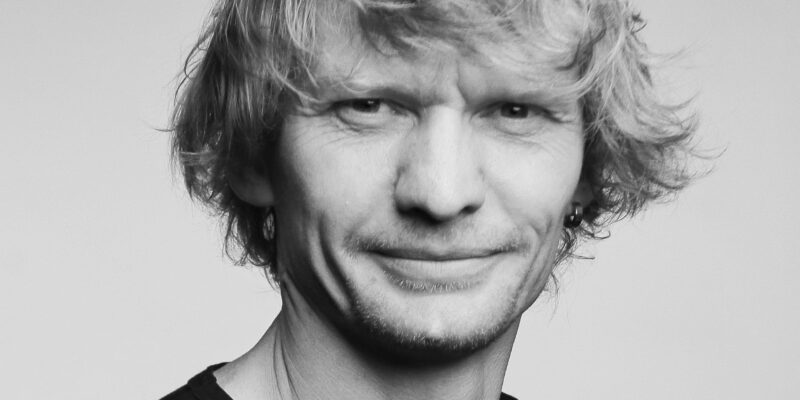Ukraine: photojournalist Maks Levin missing, multiple journalists abducted and forced to “cooperate”

Several cases of abduction of journalists in the occupied territories of Ukraine have been reported over the last month. Some have been released while Ukrainian photojournalist Maks Levin is still missing since 13 March. The European Federation of Journalists (EFJ) condemned the deliberate targeting of journalists by the Russian military and denounced the torture and pressure exerted on journalists and their families in order to make them cooperate.
“They jumped on me from behind, threatened me with weapons, twisted my arms and demanded that I kneel down. Afterwards, I was interrogated by different people. Those conducting the interrogation had their faces masked or, more often, kept their heads down and covered.” A journalist for Novy Den newspaper, Oleg Baturin, was the first “missing” in the Kherson region, on 12 March. He was on his way to what was supposed to be a short meeting to meet an acquaintance near his house, leaving his phone and documents at home, when his relatives lost contact with him. “I understood that I was captured by Russian army soldiers,” among them were members of the FSB [Russian security services], he told Le Monde. In his first interview following his release, on 20 March, he recounts his eight-day detention, the beatings, interrogations, deprivation of food and water, and the threatening with death.
“They wanted to break, to trample, to show what will happen to every journalist: you will be crushed. You will be killed”, said Oleg Baturin.
Testimonies of journalists held captive tell of similar horrible conditions of detention. A Ukrainian fixer working for Radio France was detained for nine days between 5 March and 14 March. Renamed “Nikita” for safety reasons, he told Reporters Without Borders (RSF) how he was beaten with an iron bar, tortured with electricity, subjected to a mock execution, and deprived of food during “nine days of horror” in the forest and in a basement. RSF reported that the soldiers forced Nikita to write and sign a letter in which he declared his support for the Russian army and the invasion of Ukraine.
A day later, Hromadske journalistVictoria Roshchina was detained for nine days on her way to Mariupol. After her release on 21 March, pro-Russian media shared a video recorded under coercion, in which the journalist denied she had been held in captivity and that the officers had saved her life. Hromadske media outlet said this video was a condition of her release.
“The Russian army is looking for journalists”
“There is currently not a single ‘pattern’ for abducting journalists, but one thing is clear: in the occupied territories, the Russian army is looking for journalists. This is evidenced by absolutely all colleagues on the field. In the regions, they usually have prepared lists. During the siege of the Kyiv region, soldiers searching people and premises were looking for any mention of the profession of a journalist”, NUJU President Sergiy Tomilenko told EFJ.
“We have recorded abduction of journalists as in the cases of Oleg and Victoria, as well as some sort of ‘preventive talks’ intended to force them to cooperate, to influence the media coverage with pro-Russian propaganda. The main goal is to remove the source of objective information, to make it easier to manipulate the population,” Tomilenko added.
Typically the Russian army goes to the offices and apartments of journalists and media owners to pressure them or their families for several hours, while searching and confiscating computers, mobiles, and other journalistic equipments.
A warning to discourage reporting
This is what happened to four journalists working for MV-holding in Melitopol. Publisher Mykhailo Kumok, editor Yevhenia Borian and journalists Yulia Olkhovska and Liubov Chaika were detained by Russian forces on 21 March. They were held in a secret location after gunmen came to their home. According to the union in the region, the Russian authorities wanted to force them to cooperate. The four representatives of the MV-holding media were given a warning to discourage their reporting before being released in the evening.
Soldiers also took hostage the father of the director of a well-known Melitopol newspaper and website, Svetlana Zalizetskaya, on 23 March. A few days earlier, a “preventive talk” had been held with this journalist, after which she had travelled to the territory controlled by Ukraine. When the occupiers did not find Zalizetskaya, they decided to capture her father. They demanded that the journalist present herself to them in person in exchange for the return of her father.
Maks Levin missing since 13 March
All abducted journalists have been released so far, with the exception of freelance photojournalist and documentary filmmaker Maks Levin. The EFJ is extremely worried about his disappearance 16 days ago near the village of Huta-Mezhyhirska, in the Kyiv region. The journalist was heading to the village of Moshchun to cover clashes between Russian and Ukrainian armies. Levin is a Ukrainian national and has contributed to Reuters, the BBC, The Associated Press, and other international outlets. It is assumed that he has been captured by Russian troops. The EFJ calls for his immediate release.






